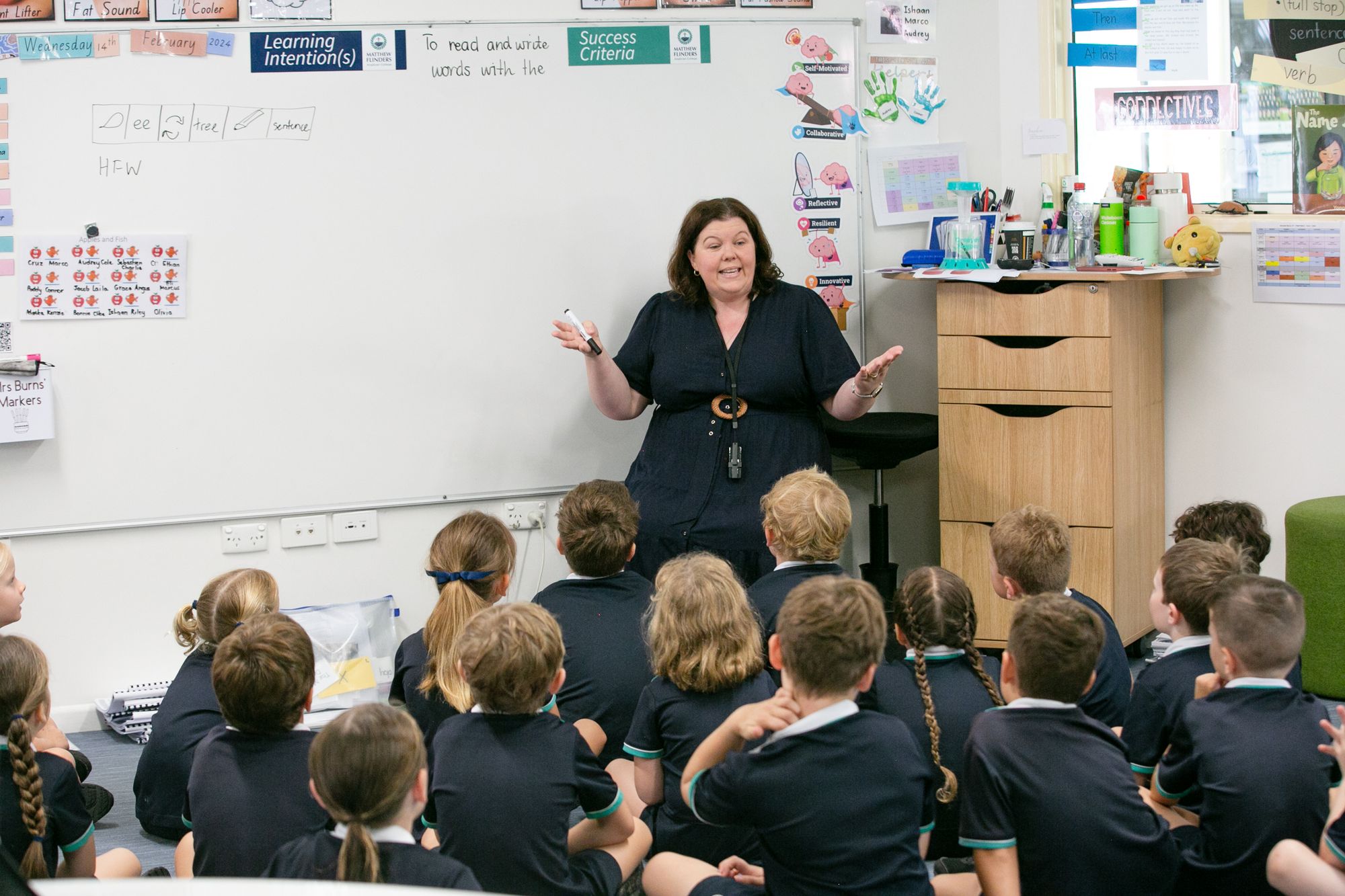
‘Experts in residency’ are helping Matthew Flinders Anglican College (MFAC) turbocharge students’ literacy and problem-solving skills by equipping teachers with specialized knowledge in design thinking and the Science of Reading.
The initiative was launched as part of the Flinders Future 2023-2027 plan, emphasising continuous learning and growth for staff.
In 2024, the MFAC started by bringing in two of Australia’s leading consultants in residence – Nicole Dyson and Jocelyn Seamer – with the former running a design thinking program for Prep to Year 6 students in Term 1.
The initiative aimed to enhance students' social, emotional, and problem-solving skills. At the same time, Jocelyn Seamer was leading the Science of Reading program in Terms 1 and 3, targeting literacy and reading skills based on the latest research.
Since the programs were launched, MFAC has seen significant improvements in teaching methods and student learning outcomes, with Year 5 students achieving the highest results in the Sunshine Coast on the 2023 NAPLAN tests, reflecting the success of the Science of Reading program.
“Our Flinders Future identifies exciting opportunities for our community of students, staff and families to embrace new possibilities, adapt and realign when needed, and build a culture of continuous improvement,” College Principal Michelle Carroll said.
‘Laying the foundation for lifelong learning and success’
The Science of Reading reveals the latest and most conclusive, empirically supported research, based on the Science of Learning, on how to teach students to read from Prep to Year 6, and its practical implications for classroom learning.
New Science of Reading research reveals how we learn to read; what skills are involved; how they work together; and which parts of the brain are responsible for reading development.
The Flinders Head of Primary, Trudi Edwards said the Primary School was committed to being at the forefront of education research.
“The latest Grattan Institute Report, The Reading Guarantee: How to Give Every Child the Best Chance of Success, validates the all-important work we have undertaken in the Primary School as essential in supporting students’ literacy success,” Edwards said.
“Over three days last week, our Primary teaching team observed Jocelyn Seamer in action as she modelled powerful reading lessons, undertook lesson observations of our teaching staff and engaged in coaching conversations to provide feedback and enhance our teachers’ expertise in teaching reading.”
Edwards said by implementing these evidence-informed approaches, Flinders Primary is “further empowering students to become proficient readers and writers, laying the foundation for their academic success and lifelong learning.”
Harnessing critical insights from neuroscience
Narelle Goan, the Head of Professional Practice and Curriculum in the Flinders Primary School, says that being a proficient reader positively influences a student’s entire education.
“We are grateful to have Jocelyn breathing life into the latest research on the Science of Reading to ensure we are giving our young learners the best start on their reading journey,” Narelle said.
“The aim is for each child to read proficiently and be engaged in their literacy development.
“We are seeing our students' results reflect our investment in the Science of Learning and the Science of Reading with our Year 5 students achieving the highest results on the Sunshine Coast in the 2023 NAPLAN tests.”
Edwards explains, “The Primary and Secondary teams have worked with education leaders, including Jared Cooney Horvath - one of the best neuroscientists in the business - on the Science of Learning to understand how the brain learns and how to apply this research to classroom teaching.
“As a result, our staff have a deep understanding of how children learn, and continue to implement and refine these strategies and protocols to support engaged learning and achievement for our students.”


